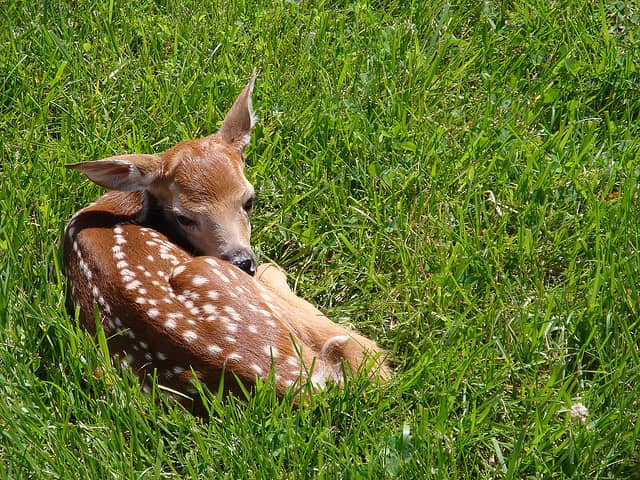Dead Trophy Bucks May Soon Father Fawns with Does Hundreds of Miles Away
OutdoorHub Reporters 05.16.12

An absolute monster of a buck harvested in Illinois successfully impregnated six does in Louisiana after his death. That sounds impossible, but with the help of a determined hunter and the brains and technology of a researcher at Louisiana State University, it’s very possible.
Hunter Mike Toney shot a trophy whitetail buck in Illinois last November. The buck’s antlers rated in the high 200s. Toney estimates that the buck weighed about 275 pounds, deer that weigh 170 to 180 are already considered pretty big in Illinois.
After the harvest, Toney thought back on a research project he had heard about conducted by Louisiana State University researchers at AgCenter Research Extension. He contacted the researchers to see if they could make use of the reproductive material from the monstrous buck and drove the semen down eight hours to Louisiana after properly packing the testicles to ensure the preservation of viable specimens.
Dearl Sanders, resident coordinator at the LSU AgCenter’s research station in Idlewild, Louisiana said breeding deer with big horns for hunters is just one of the many advantages of artificially inseminating does.
“It gives a whole new method of moving deer genetics from the wild into other herds of deer,” Sanders said in an interview with Grand View Outdoors. “Say you found a herd of deer in a state where you can’t move the deer – there are a number of those – that had an inherent resistance to a disease. This could be a way to move that genetic material to any area of the country.”
Toney reached Jesse Saenz who was a member of the LSU research team that successfully birthed three fawns in June 2006 through extracting semen from dead bucks. Saenz earned his master’s degree in 2007 with a thesis about the best techniques for extracting semen from dead bucks, but he was now working weekdays at the Audubon Center for Research of Endangered Species in New Orleans studying cat testicles for his doctorate. That Sunday in November, he extracted and froze the deer’s semen.
“I processed it, got the sperm out. They were still kicking pretty good,” Saenz said.
At the Baton Rouge and Genex Cooperative Inc., a supplier of dairy and cattle semen, the semen was loaded into 100 plastic straws and frozen in liquid nitrogen. Each straw held enough material to inseminate two does.
A total of 16 does were inseminated with semen from the trophy buck. Six became pregnant and are expected to give birth possibly next week.
LSU lawyers are looking to patent and license the insemination technique developed by Saenz for his master’s thesis. Although Saenz and Sanders say they do no plan on beginning semen sales, there is a thriving market for semen from pedigreed bucks. Straws containing half a cubic centimeters, or about one-tenth of a teaspoon, may sell for up to $10,000.

